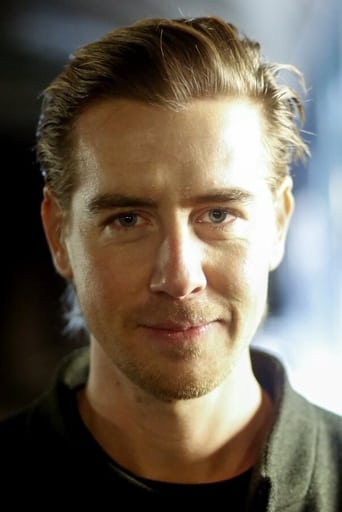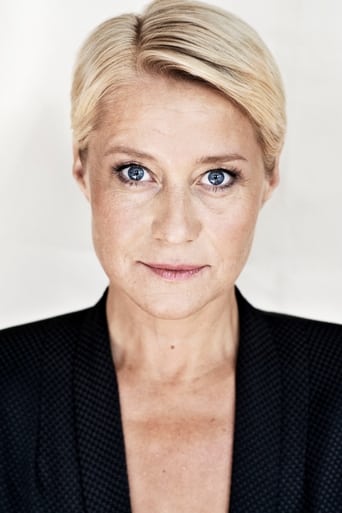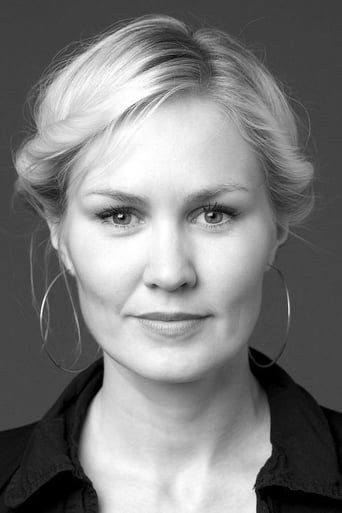
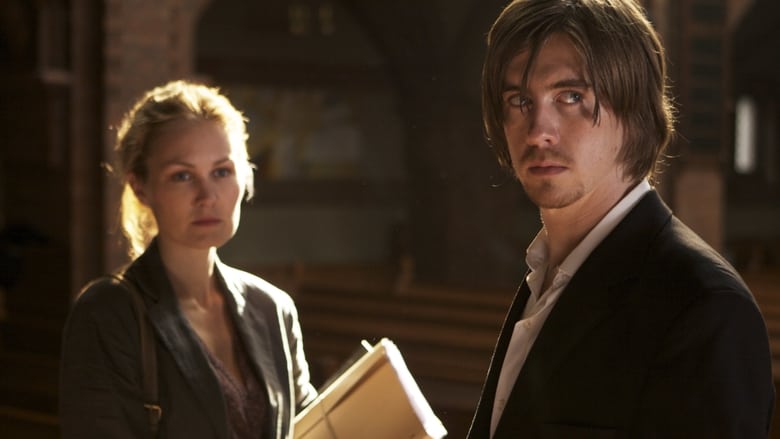
Troubled Water (2008)
A man with a troubled past is released on parole. He finds work as a church organist and develops a rewarding relationship with a priest and her young son. However, his past soon catches up with him.
Watch Trailer
Cast
Similar titles


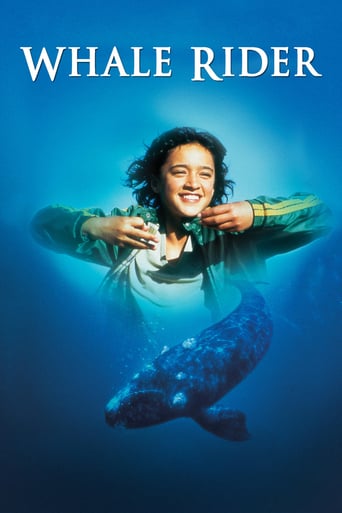
Reviews
the audience applauded
There is, somehow, an interesting story here, as well as some good acting. There are also some good scenes
It’s not bad or unwatchable but despite the amplitude of the spectacle, the end result is underwhelming.
Close shines in drama with strong language, adult themes.
Jan Thomas Hansen (Pål Sverre Hagen) is in prison for killing a child during his teens. He is released on parole and finds work as a church organist. He befriends the priest Anna and her young son. His victim's mother Agnes (Trine Dyrholm) accidentally spots him in the church as his troubled past resurfaces to cause chaos.It has a slow plodding pace for most of the movie. The lead is playing the quiet character very close to the vest. It doesn't allow much tension into the first half of the movie. When Agnes is put into the movie, it is a bit of ticking clock for the audience as we wait for the inevitable confrontation. The first half already lays out what is going to happen in much of the second half. Maybe it went one step too far by telling us that the boy goes missing. Nevertheless there is a realism in the performances by both leads. The movie gets much more fascinating with the two characters on the same screen.
I thought this film was very delicate, very sad, and beautiful. A story of forgiveness and second chances, atonement and renewal. Several motifs I thought were well used, water being one – representing cleansing and new beginnings. Also the use of an out of focus close-up shot of a face (there were 4 or 5 used), in my opinion, to offer the notion of doing something so awful you become unrecognizable even to yourself.The main character plays the organ, and is mainly the only music used in the film. Which I think works very well, leaving space for moments of contemplation. The two main characters represent polar opposites in what they are trying to do in life (trying to move on from the past v. trying to hold onto the past) – both actors were excellent. I also enjoyed the way the film was divided and structured.
The female minister was a wonderful actor the main character Thomas was well cast as someone you wouldn't care for but this movie drags. It resembles a sophisticated Lifetime TV channel special.Two teenage boys for a "prank or thrill" take off with a 4 year old. They think he has been killed when he falls down a river bank...they decide to get rid of the body by disposing of it in the river. The mother of the boy is convinced they killed her son who was never found. The movie opens when one of the teenagers is released from prison. Now in his late 20s he finds a job in a church where forgiveness atonement etc...all workout.This is basically a Lifetime TV special/yuppie Norwegian movie with all the icons...female priest...adopted Asian children...obligatory love scene between a couple married for many years.Real life is not like this of course--once the mother found out the truth she would hate Thomas more. In the end he confesses that the boy was alive when he dropped him in the river.It is so slow moving and so "lets tell a moral tale" laden down with all the conventional middle-class baggage. Ughh...There are a lot of good Norwegian films...Watch Oslo August 31 instead it is so much better.
Employing clever symbolism and powerful camera work, "Troubled Water" brilliantly captures the complexity of atonement and forgiveness. In this final installment of his masterpiece trilogy, director Erik Poppe explores the aftermath of an unthinkable event: the kidnapping and murder of a child. Having been convicted of these crimes as a teenager, Jan Thomas (Pål Sverre Valheim Hagen) serves his time in prison and is released back into the world, still a young man. The first part of the film follows Jan's reentry into society – he becomes a church organist and begins a romantic relationship with the priest, Anna (Ellen Dorrit Peterson) – as well as his struggle to be forgiven – by individuals, by God, and by himself. The film then shifts points of view and focuses on Agnes (Trine Dyrholm), the mother of the little boy, as she attempts to both explain and accept the death of her son and somehow forgive his murderer. Like Poppe's previous creation, "Hawaii, Oslo," "Troubled Water" moves quickly between space, time, and perspective and has a distinctive undertone of the religious, the spiritual, and the unknown. The result is a powerful piece of art that leaves the viewer at first confused and in the end disturbingly enlightened. As its English title suggests, water is a strong symbol in this film. It is used to represent death and loss as well as redemption and rebirth. Water is present from almost the first scene, in which the little boy, Isaac, is carried off by the river's current. At this point we believe that he is already dead when he enters the water, having fallen on the rocks and hit his head. We later discover, however, that he was still alive and that Jan released him anyway, allowing him to drown. In this case, it is the water that actually kills Isaac. Years after his death, his mother still imagines Isaac floating through the murky river. Swimming in the pool, she opens her eyes under water and watches in horror as her son's body slowly disappears out of sight. For Agnes, water is the sight of both the literal and figurative loss of her son. Yet water is also a positive force, providing cleansing and redemption. After working in the church and experiencing Anna's intense faith, Jan decides to become baptized. This event symbolizes not only his rebirth and forgiveness in the eyes of God and but also his desire to become a new, better person. This ritual use of water represents Jan's transition from convicted murderer to productive member of society. Importantly, water also acts as a concrete transition in the film. Just as "Hawaii, Oslo" featured colorful, psychedelic illustrations between scenes, "Troubled Water" uses water imagery to signal significant shifts in perspective or setting. Without a doubt, the main theme of this film is forgiveness. The two narratives – that of Jan and that of Agnes – parallel the two notions of forgiveness: being forgiven and forgiving. The crime that Jan committed was terrible – unforgivable, some would say. It is for this reason that Jan has such a hard time seeking and attaining forgiveness. It is clear that he feels guilty for what he has done; the self-deprecating sadness in his eyes is unmistakable. Yet atoning for his sins does not come easily. He does not seek out Isaac's family in order to apologize and when Agnes's husband, Jon (Trond Espen Seim), demands that he confess to murdering their son, Jan refuses to do so. It is not until the end of the film that he truly admits his guilt, revealing to Agnes the horrific details of that fateful day at the river. Even then, he does not directly request forgiveness. Perhaps he knows that this would be too much to ask of her. He may attempt to gain the forgiveness of God by being baptized, of society by holding a productive job, and of himself by helping to raise another little boy (Anna's son), but he simply cannot attempt to gain the forgiveness of a mother whose little boy he killed. Ironically, Agnes chooses to forgive Jan despite his lack of solicitation. Though she spends much of the film angrily trying to achieve revenge, in the end she manages to show a remarkable amount of acceptance and compassion. She forgives the situation, telling her husband, "I'll let go of him. I promise." And she forgives Jan himself, touching his face with incredible tenderness. Her ability to forgive is nothing short of magnificent. Adding complexity to the issue of forgiveness, the supposedly pious Anna who believes in God's will and advises Jan to "accept things as are" is unable to forgive his past. The camera work in "Troubled Water" emphasizes the effect of tragedy on each character, bringing to life the duality of forgiveness. One of the most striking angles is that of the extreme close-up in which the face becomes blurred. This technique follows the split narrative; at first Jan is the focus, and then Agnes. In both cases the camera is so close that the features of the characters' faces are lost. This hazy obscurity reflects the characters' fixation with the crime and the past. It has taken over their thoughts and their lives to the extent that they are no longer themselves, or perhaps no longer human. Despite their opposing positions, the event has touched them both irrevocably. Similarly, there are many shots in which the sole focus is Jan or Agnes's facial expressions or eyes. These scenes allow us insight into the deepest emotions of the characters. The intense sadness, anger, and pain apparent in each character force us to sympathize with both sides of the story. We understand Jan's struggle for forgiveness just as much as Agnes's struggle to forgive. In this way, the viewer leaves the film questioning the difference between right and wrong, good and evil, criminal and victim. Just like troubled river water, very little in life is clear.
